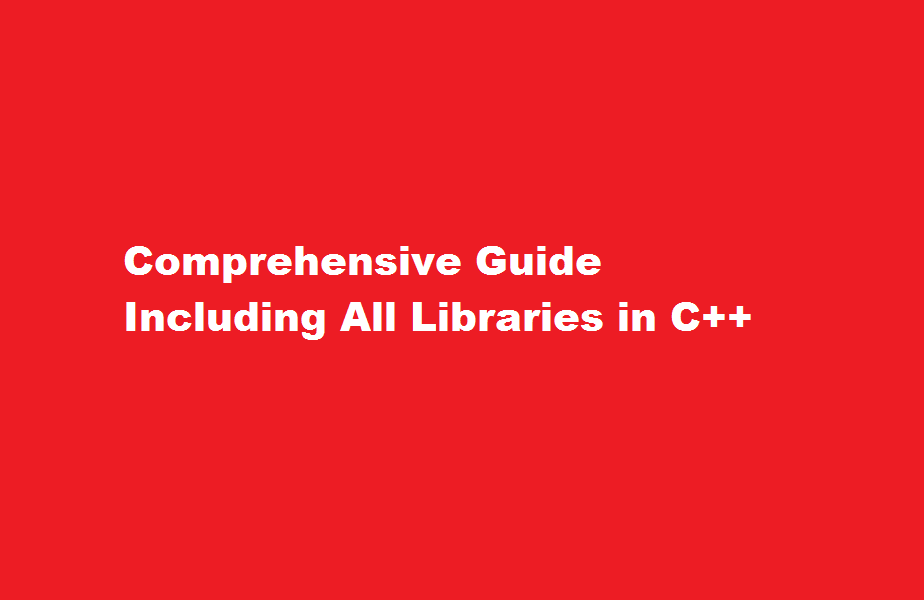Comprehensive Guide Including All Libraries in C++
3 min read
Introduction
C++ is a versatile and powerful programming language that offers a vast array of libraries, each designed to address specific functionalities and enhance development efficiency. Understanding how to include these libraries correctly is essential for maximising the capabilities of your C++ programs. In this article, we will provide a comprehensive guide on including all libraries in C++, exploring the various methods available, and offering insights on best practices to ensure seamless integration.
Standard Libraries
C++ comes with a rich set of standard libraries that provide a wide range of functionality. These libraries are included by default and offer support for essential operations such as input/output (iostream), string manipulation (string), mathematical calculations (cmath), and more. To use a standard library in your program, you need to include the corresponding header file at the beginning of your code using the ‘#include’ directive.
External Libraries
In addition to standard libraries, C++ allows developers to include external libraries that extend the language’s capabilities beyond its core features. External libraries offer specialised functionality, such as graphics rendering, network communication, database connectivity, and machine learning. Here are the steps to include external libraries in your C++ program
- Obtaining the Library Before including an external library, you must download and install it. Libraries usually come with documentation and installation instructions specific to the platform you’re working on. Make sure to follow these instructions carefully to ensure a successful installation.
- Include Paths After installing the library, you need to provide the necessary include paths to your compiler. Include paths specify the directories where the compiler searches for header files. You can usually set the include paths through compiler flags or project settings.
- Linking Libraries Besides including the header files, you also need to link the library with your program during the compilation phase. Linking ensures that the required library functions are available at runtime. The specific steps for linking libraries depend on the development environment and platform you are using. Generally, you need to specify the library name and path using compiler flags or project settings.
Package Managers
Package managers are powerful tools that simplify the process of including external libraries by automating installation, dependency management, and linking. They allow you to declare the libraries your project depends on, and the package manager takes care of downloading and installing the necessary files.
Popular package managers for C++ include Conan, vcpkg, and CMake’s built-in package management. These tools provide vast repositories of libraries, making it easy to find and include dependencies in your project. They also handle versioning, ensuring that your project uses compatible library versions.
Best Practices
When including libraries in your C++ projects, it’s important to follow some best practices
- Use only the necessary libraries to keep your codebase clean and avoid unnecessary dependencies.
- Regularly update your libraries to benefit from bug fixes, new features, and performance improvements.
- Document the libraries you use and provide clear instructions for their installation and integration, making it easier for others to work with your code.
- Ensure compatibility between libraries, as using conflicting versions can lead to runtime errors.
Frequently Asked Questions
How many libraries are there in C++?
C++ comes with two standard libraries: the old C library (libc. lib), and the new C++ library (libcp. lib), which is logically divided into the stream library, and STL, the standard template library. Many implementations also include a pre-standard stream library for backward compatibility.
Which library is max in C++?
header file <algorithm
In C++, the max() function is available in the header file <algorithm.
Conclusion
Including libraries in C++ is a fundamental skill for developers aiming to leverage the language’s vast ecosystem. By following the steps outlined in this article and embracing best practices, you can seamlessly integrate both standard and external libraries into your projects. The ability to tap into the extensive functionality offered by libraries empowers developers to build robust, efficient, and feature-rich applications in C++.
Read Also : Mastering Query Insertion in Java A Comprehensive Guide






